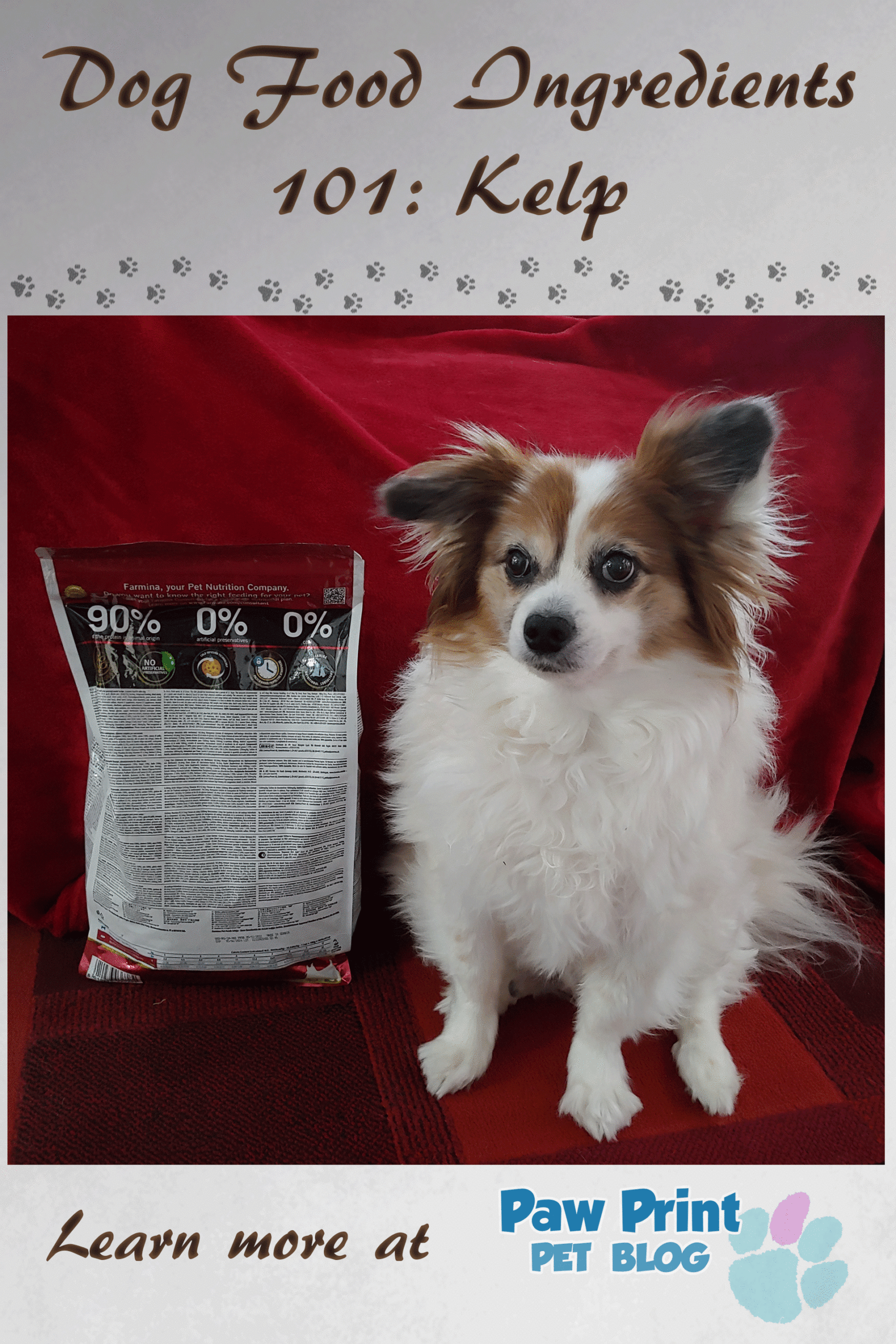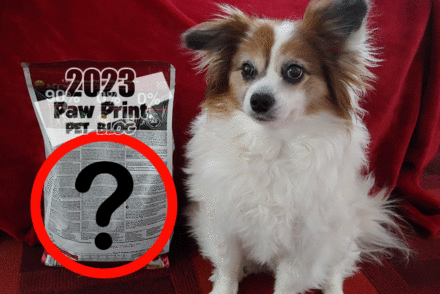 I thought coming up with a dog food ingredient that starts with “k” was going to be just as challenging as “j” was yesterday. Que to my Alaskan Klee Kai, Fenrir, coming up to me as I was researching to beg for one of his favorite treats – PlaqueOff dental chews. The main active ingredient in the dental chews I use for my dogs is kelp! Inspiration struck, thanks Fen! It turns out that some dog foods contain kelp too.
I thought coming up with a dog food ingredient that starts with “k” was going to be just as challenging as “j” was yesterday. Que to my Alaskan Klee Kai, Fenrir, coming up to me as I was researching to beg for one of his favorite treats – PlaqueOff dental chews. The main active ingredient in the dental chews I use for my dogs is kelp! Inspiration struck, thanks Fen! It turns out that some dog foods contain kelp too.
This post is part of our 2023 April blogging from A to Z Challenge! Join us this month as we go through the alphabet, A to Z, learning more about some of the ingredients that are commonly (or not so commonly, in some cases) found in our dog’s food!
Post Contents:
What is Kelp?

Photo Credit: Fred Hsu, licensed under the Creative Commons Attribution-Share Alike 3.0 Unported license.
Kelp is a type of algae/seaweed. There are around 30 different genera of kelp. Although it is often green in color, it’s technically a type of brown algae. Kelp grows best in shallow, nutrient-rich ocean water. Kelp forests provide both food and shelter for a wide array of ocean life. Kelp is known for growing especially fast, up to half a meter a day!
Kelp has been harvested by humans for centuries. It used to be harvested to produce soda ash (sodium carbonate). It also used to be harvested as a source of iodine and iron, and because it can be used in both the soap and glass production process.
Kelp these days is used to produce alginate, which can be used to thicken products such as jellies, toothpaste, and ice cream. It’s used in some skin care products and is consumed especially in Chinese, Japanese, and Korean cuisines. Oh, and kelp is somewhat commonly used in dog products!

Why is Kelp Added to Dog Food?
Kelp is somewhat commonly used as a supplement to help promote dental health in dogs. This study done in 2018 found that…
90-day supplementation of dogs with kibbles containing A. nodosum [a type of kelp] seaweed resulted in significant improvements in several dental health indices and was beneficial for the prevention of plaque and calculus formation after a prophylactic dental procedure…A. nodosum supplementation may be effective for long-term prevention of halitosis as well as for maintenance of good oral health.
Kelp is also thought to have a number of health benefits, everything from providing essential nutrients to boosting the immune system.
Cons of Feeding Kelp to Dogs:
I know from feeding my own dogs kelp based dental chews that kelp should not be given to dogs with thyroid issues. It’s high in iodine and is thought to potentially lead to hypo or hyperthyroidism based on dog’s thyroid condition.
Benefits of Feeding Kelp to Dogs:
I can speak personally to the benefits of kelp when used to help maintain dog dental health. Not only are my dogs small (thus more prone to dental disease) but they’re also 7 and 14 years old. Neither one has ever required a dental cleaning from the vet. There’s a few things I do to help maintain their dental health, and one of them is using kelp based dental chews.
These are some other potential benefits of feeding kelp to dogs…
- Kelp is a good source of nutrients. It contains 60 different minerals and 21 amino acids. Kelp is a good source of calcium, boron, potassium, iron, and vitamins B12, C, E, and A, among lots of other things.
- Kelp is high in fiber and can act as a prebiotic. It helps support a healthy GI tract.
- By helping to maintain a healthier GI tract, kelp also boosts the immune system.
- The iodine in kelp can help to regulate the thyroid, pituitary gland, and adrenal gland.
- By boosting thyroid function, kelp can help boost metabolism and help dogs deal with the effects of stress.
- Kelp is about 25% protein, so it can boost dog food’s protein content without adding a lot of additional calories.
- Kelp is thought to help reduce inflammation and may be beneficial for dogs with allergies.
So What’s the Verdict on Kelp? Is it Safe as a Dog Food Ingredient?
I’ve been giving my own dogs kelp based dental chews for years now with no ill effects. Do make sure to consult with your vet before supplementing with kelp if your dog is experiencing any health issues, especially thyroid issues. But I really do feel that kelp has done wonders for helping to maintain my dogs’ dental health.
Comment below! Have you ever tried kelp based dental products for your own dog, or does your dog’s food contain kelp?






1 Comment
Visiting from A to Z
I have a young dog who will turn 1 this weekend (still a puppy really). I haven’t looked at the ingredients but was interested to read your post and will now look out for kelp based dental products.